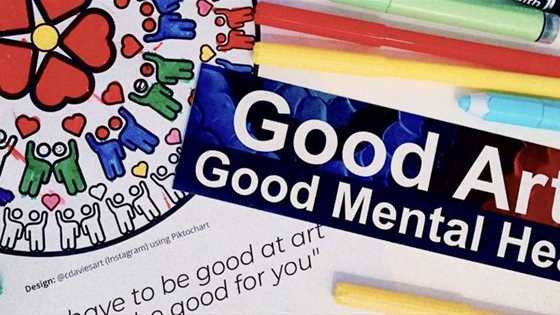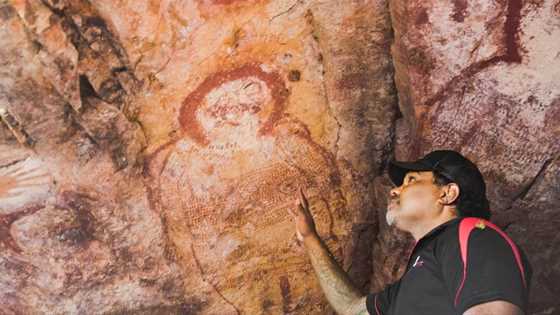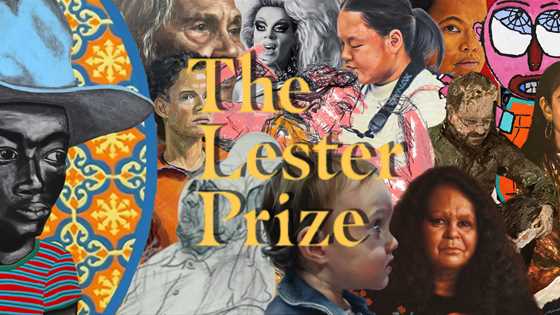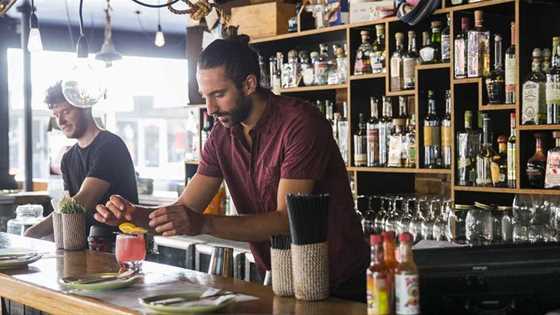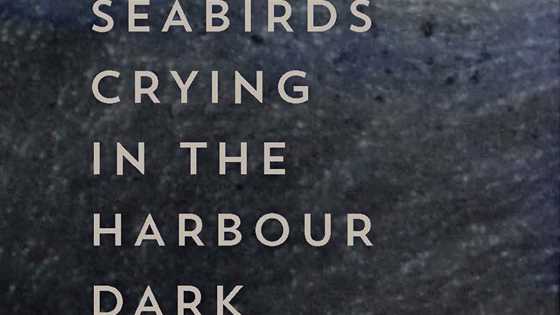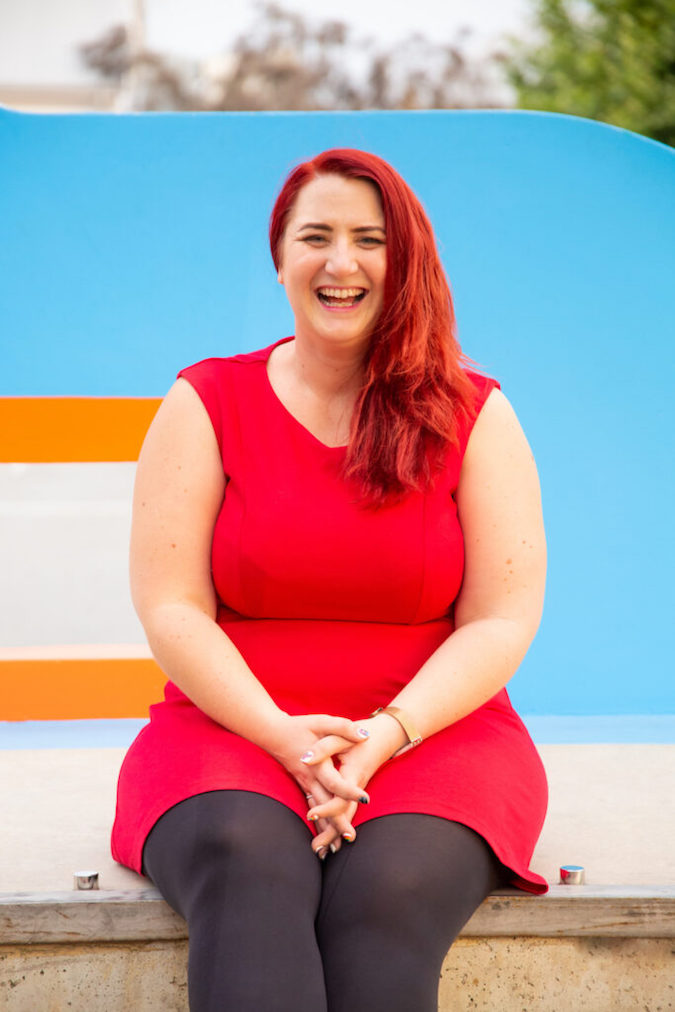 Bonnie Davies, CEO and director of The Gelo Company.
Bonnie Davies, CEO and director of The Gelo Company.
Our vibrant local independent scene
WA performing arts leaders agree that our independents are more than capable of stepping into the breach. “I’d be so bold as to say that our independent sector is the best part of our performing arts sector in WA … the independents are the life-blood and energy that is Perth art,” remarks Kathryn Osborne, acting executive director of The Blue Room Theatre, artistic director of Riptide Youth Performance Company and independent director and producer. More broadly, Perth’s performing arts scene has development and presentation platforms that are “the envy of other cities”, says Marcus Canning, one of the owners of The Rechabite, founder of Fringe World Festival and former CEO of Artrage. “We have one of the world’s greatest arts festivals, a fantastic fringe festival, one of the most celebrated training institutions on the planet, a dynamic array of year-round venues and stages and development organisations, access to an astonishing diversity of regional communities across the state, if you choose to connect. More importantly, we have a creative community that is resilient, innovative, can-do and not afraid to roll up its sleeves and get amongst it when the need presents.” While its geographical distance poses challenges, the WA performing arts sector’s “splendid isolation” is also its greatest strength, continues Canning. “Isolation seeds independence in ways that are not evident in other cities,” he explains. “DIY is in our DNA.”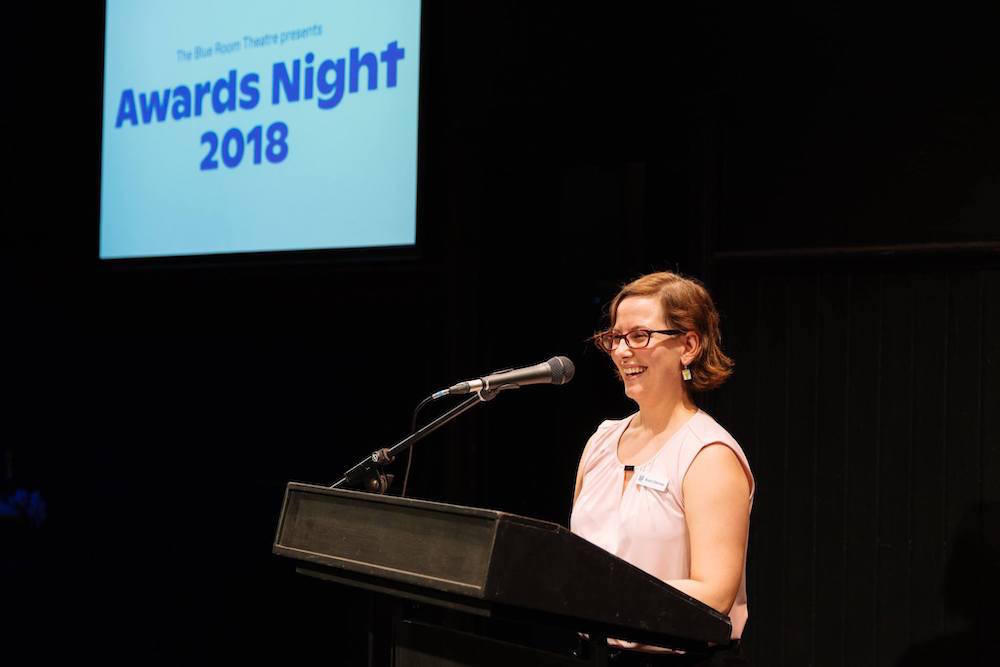 Kathryn Osborne, acting executive director of The Blue Room Theatre. Photo: Rebecca Mansell
Kathryn Osborne, acting executive director of The Blue Room Theatre. Photo: Rebecca Mansell
 Marcus Canning, The Rechabite. Photo: Luke Carter Wilton
Marcus Canning, The Rechabite. Photo: Luke Carter Wilton
“Every notable mainstream and mainstage talent worth their mettle has had some kind of formative experience forged away from the centre.”
Home-grown festivals
One of the biggest opportunities for local independent artists will be the 2021 festival season. Though it’s early days in terms of programming announcements, particularly because it’s still unclear what restrictions will be in place in early 2021, Perth Festival executive director Nathan Bennett and Fringe World CEO Sharon Burgess say their respective festivals will feature predominantly local work. Even if our national and state borders are open in time for the festivals, the quarantine requirements may make programming shows from interstate and overseas financially unviable. And then there is social distancing. “Clusters of infection occur in enclosed spaces like clubs and places where people are tightly packed in,” observes Bennett. “So traditional theatre venues are, no doubt, going to be impacted, and there will likely be some level of social distancing restrictions in place.”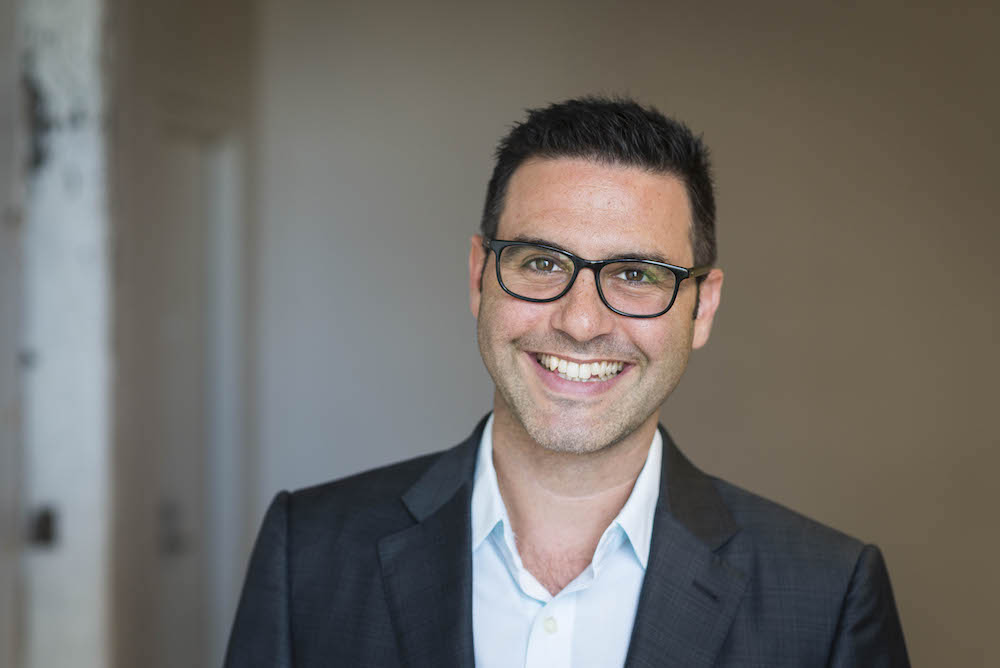 Nathan Bennett, Perth Festival executive director
Nathan Bennett, Perth Festival executive director
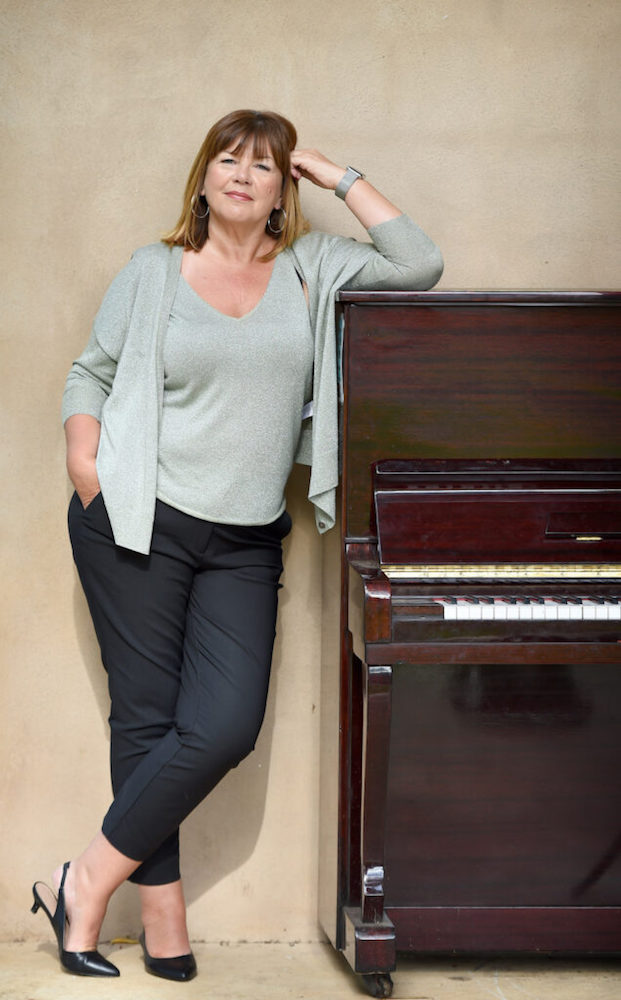 Sharon Burgess, CEO, Fringe World. Photo: Naomi Jellicoe
Sharon Burgess, CEO, Fringe World. Photo: Naomi Jellicoe
Opportunity Knocks
The door is open for independent artists and, at a time when traditional theatre spaces may not be viable for use, they’ve got what it takes to step inside, says Rachael Whitworth, senior producer at Performing Lines WA. “I think it is going to be the independent artists who can be, potentially, the most powerful and able to connect with audiences, because they’re going to make work that is not always made for a massive mainstage, that seeks to reach and engage audiences in new and different ways,” she observes. When it comes to responding to challenges or changes, independent artists are also nimble and flexible, says Ryan Taaffe, executive director of CircuitWest. “Independents can see a problem today and start working on a show or a solution tomorrow,” he remarks. “Bigger companies [can’t do that], not through any fault of their own, but the style they operate in is a set pattern, created months or years beforehand.” It seems like a perfect fit for independent artists but, says Davies, there is one more vital step that needs to be taken in order for independents to be able to flourish in the post-COVID world.Movie cinemas, big theatres, nightclubs are going to be limited and it’s an opportunity to develop new audiences for the arts and culture sector.”
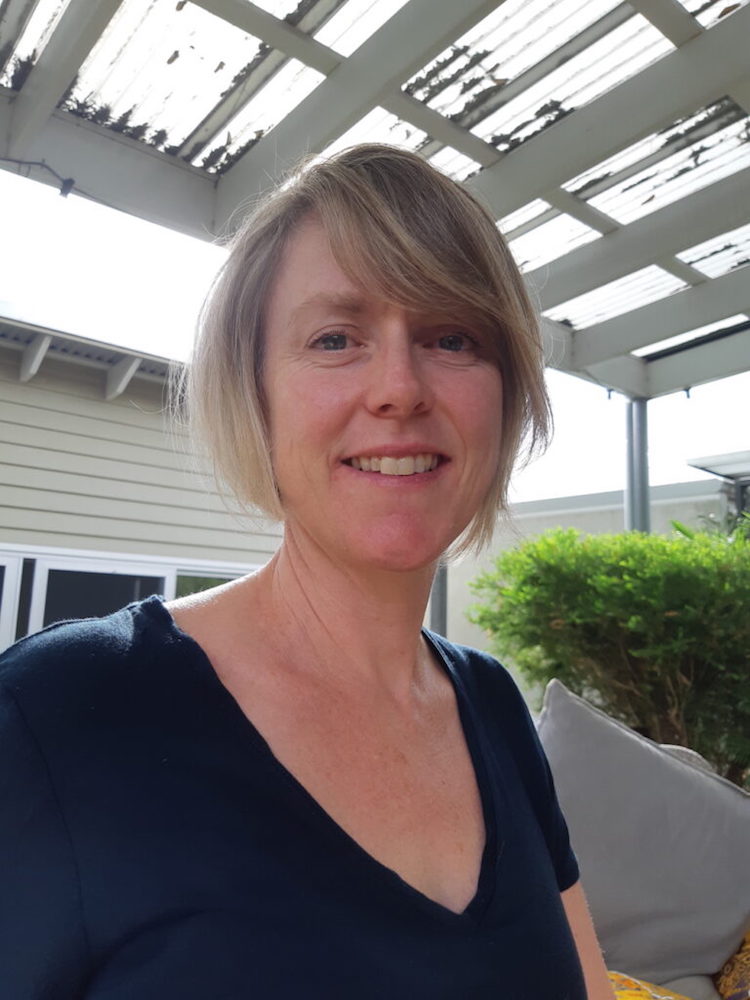 Rachael Whitworth, senior producer at Performing Lines WA
Rachael Whitworth, senior producer at Performing Lines WA
Rising from the ashes… together
That belief that the performing arts sector needs to work collaboratively – with larger organisations supporting independents – to meet the challenges of the post-COVID world, is echoed by arts leaders. “The question is, how does the whole arts sector – venues, producers, independent artists, and independent producers and technicians and all those people – actually come together to decide what the new normal is?” Taaffe asks. “This is a chance to reset, to address many of the problems that existed before COVID-19.” One of those problems, says Whitworth, is the lack of advocacy for independents. “In a lot of the conversations that I’m involved with at an industry level there is this deep recognition that artists are not necessarily being covered by the JobSeeker and JobKeeper payments, but also this question about why venues and organisations are able to keep front of house and administrators financially sustained but not artists,” she remarks."Out of system collapse, new ways of doing things inevitably arise and with them come new visions, new transformations and maybe new values.”When it comes to conversations about how the arts sector will move forward, it’s vital to have independent artists at the table, Whitworth continues. “When you’re thinking about new ways of living in the world, what we need is an artistic voice within that conversation, to be coming up with new ideas that administrators don’t think about.” Taaffe and Whitworth aren’t just talking the talk. Their respective organisations, CircuitWest and Performing Lines WA, are collaborating to find practical ways to bring the arts sector together, to start conversations about how to move forward. “We’re trying to develop an event in June … called “WA Connects”, about the sector coming together and looking at what the new normal is post COVID,” Taaffe explains. “It’ll be about having those conversations to help artists understand venues, venues understand artists, producers. Because we say we serve the performing arts sector at CircuitWest, we see ourselves as having some responsibility in helping that conversation to happen.” At a time when the performing arts community feels so vulnerable, it’s an exciting thought that positive change may emerge from the ashes. Canning, for one, is all for it. “This whole COVID shake-up excites me greatly. I love it when a static status-quo is slammed with a disruption it didn’t see coming,” he muses. “Personally, I kind of hope this post-COVID world, and the forced focus on the local, starts to engender a little more of that kind of authentic wild grass-roots spirit. Out of system collapse, new ways of doing things inevitably arise and with them come new visions, new transformations and maybe new values.”
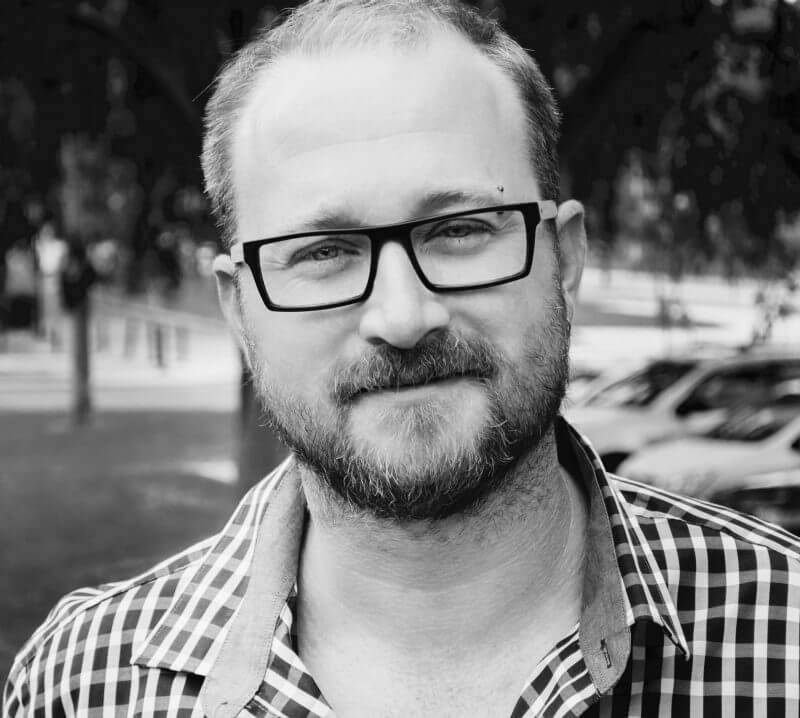 Ryan Taaffe, executive director of CircuitWest
Ryan Taaffe, executive director of CircuitWest
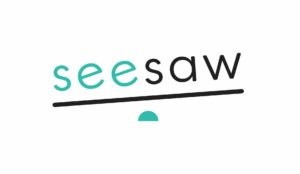 View more great stories from Seesaw Magazine, Perth’s online arts playground HERE
View more great stories from Seesaw Magazine, Perth’s online arts playground HERE
‘[The independent sector] is where real experimentation and boundary pushing occurs … It’s where cross-artform collaborations are strongest and where hybridisation is engendered.’ ‘i have loved the stars too fondly to be fearful of the night’, by independent dance artist Rachel Arianne Ogle, is an example of such experimentation. The work, which is pictured top, was performed at PICA in 2019. Photo: Mick Bello


